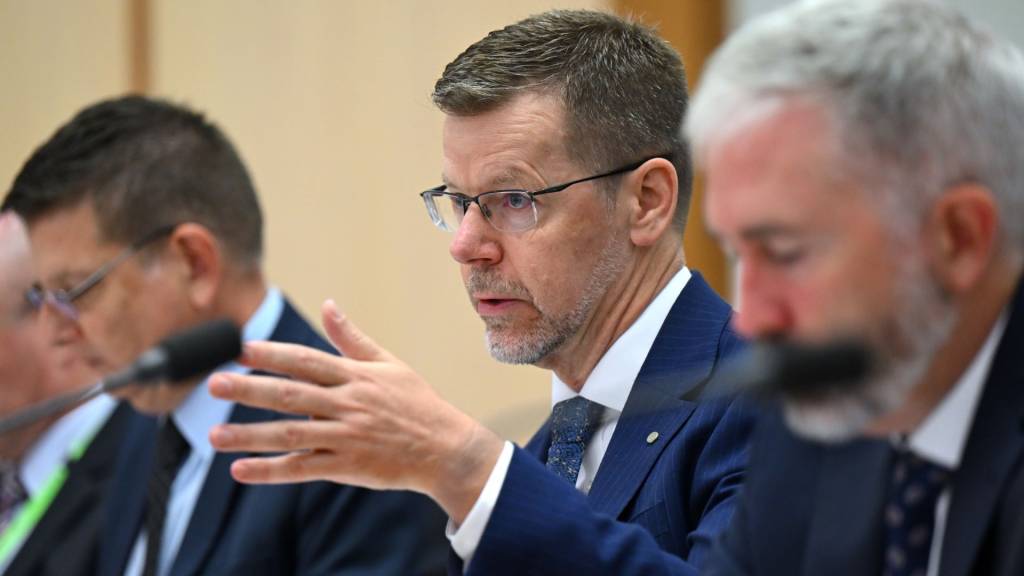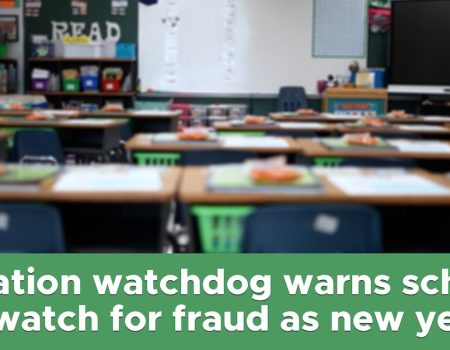An independent capability review has called on the Education Department to bring a “holistic systems perspective” to its portfolio and work towards delivering a better-performing national education system.
The review has outlined how the Education Department, with an annual budget exceeding $375 million ($55 billion in administered expenses) and just over 1,700 staff, would need to address several priorities over the coming years.
Published on Friday, the document acknowledged work to develop a strategy that took a system approach to policy and delivery across education sectors.
The review said this strategy would help deliver outcomes-focused reforms in partnership with sectors rather than via existing silos. But more work was needed to see through “major policy” reforms as part of a “substantial government agenda”, in addition to increasing responsibilities for program delivery and regulation.
“A more strategic whole-of-life approach to education, that reduces the risk of people missing out on quality education and engages more effectively with community, will bring benefits and system efficiencies,” the review said.
“The department’s ability to influence key decision-makers including government with a proposed long-term strategy, while working with its federated partners on addressing core opportunities to enhance educational outcomes, will be critical over its long-term horizon.”
Some of the challenges facing the Education Department include maintaining the scale and efficiency of enabling functions in the face of consistent machinery of government (MOG) impacts (the organisation has been repeatedly merged and separated from the employment and workforce portfolios over the last decade), and maintaining a unifying purpose across different sectors.
Structural changes, such as the proposed establishment of the Australian Tertiary Education Commission (ATEC), would add to the department’s burden. The review observed that work to support “a complex range of regulatory and delivery bodies” – subject to different governing legislation and practices, and funded in various ways across the federation – was also growing.
“The department operates in a federated system with a complex stakeholder environment. It shares common goals and challenges with multiple sectors, delivery partners and entities. While the goals are shared, the department has varying degrees of responsibility across the education sectors,” the review read.
“The department has stronger responsibilities for early childhood education and care, and higher education and research outcomes, while the states and territories are responsible for schools’ operations.
“While the department does not run schools, it has federal funding responsibility for schooling, in partnership with states and territories. It also drives national policy reform and houses portfolio bodies responsible for national standards and the Australian curriculum, as well as teacher and school leader standards.
“This complexity increases the need for the department to maintain high-quality relationship management, stakeholder engagement and enduring partnerships to be an effective steward of the education system overall, and meet the expectations of the parliament, government and Australian people.”
The capability review flagged particular concern about what teacher workforce shortages meant for the future of education in Australia, particularly among early childhood and school educators.
Federal agencies and portfolio experts needed to be better engaged to support the work required to meet this challenge, the review panel said, so that policy and program development could be improved.
With respect to the changing capability needs of public servants, the review panel highlighted the growing importance of skills such as review, evaluation and change management.
“The department has seen an increased focus on program delivery and regulation to deliver on the transformation agenda,” the report read.
“With a proud history as a policy department, the increasing focus on additional functions will require the department to proactively attract and retain different specialists and develop staff capability at all levels of the organisation.
“This is necessary especially among middle-level managers, to deliver projects and programs and achieve an ongoing quality public administration capability.”
The capability review was led by senior mandarins Rachel Hunter, Mike Mrdak, Kevin Brahim and Samantha Palmer.
They suggested the Education Department improve capability by working on existing priorities with four extra focus areas:
- Continue to develop a holistic strategy to steward the education system as a whole;
- Enhance collaboration with external stakeholders;
- Lead and monitor transparent data sharing with federated partners; and
- Lift department skills and knowledge for regulation, service and program delivery, as well as optimise existing skills in policy and public administration craft.
Writing in the foreword of the capability review, APS commissioner Gordon de Brouwer said the aim of the independent review was to highlight organisational capability gaps within the department and identify ways to improve these gaps.
De Brouwer thanked those who assisted with the review process, calling out senior reviewers Hunter, Mrdak, Brahim and Palmer in particular.
“I thank the secretary Tony Cook PSM and the senior leadership team of the Department of Education for their leadership and commitment in participating in the review,” the commissioner said.
“I extend this thanks to their support team for their responsiveness, and staff for their willingness and dedication to ensure a seamless and collaborative review process.”
“I would also like to thank the senior reviewers… for their expertise, dedication and stewardship in undertaking the review, and the support team from the APSC.”
The Education Department has two key goals: 1) Improve early learning, schooling, student educational outcomes and transitions to and from school; and 2) To promote growth in economic productivity and social wellbeing via quality higher education and research.
It’s split into four groups: early childhood and youth; schools; higher education, research and international; and corporate and enabling services.
Some macro trends the review identified as likely to impact the department’s work including the growing number of Australians living in poverty (affected by economic factors such as housing, cost of living and the environment), the nation’s declining birth rate relative to its ageing population, an unpredictable geopolitical climate, and the influence of AI and other emerging technologies.
“Rapidly changing technology … presents both an opportunity for innovative education delivery as well as challenges to maintain pace with evolving workplace expectations across all sectors and within the department,” the review said.
“The department will need to be proactive in providing leadership and stewardship to support stakeholders in safe and responsible use of emerging technologies, including AI.
“Internally, the department has an opportunity to improve operational efficiency and collaboration by capitalising on the opportunities presented by AI and automation.
“To deliver on this, the department will need a strong employee value proposition and well-integrated workforce planning approach to attract and retain staff with specialist digital and data skills.”
The reviewers also noted the “clear, focused drive” shown by the department’s leadership to help ensure Australia had the human capital, social cohesiveness and economic outcomes to reach its potential as a nation.
“The department plays an important role in the lives of people of all ages and backgrounds in Australia – from those taking the first tiny steps in their learning journey through to those transitioning to and through schooling and higher education; from the esteemed professionals solving the world’s most challenging research problems to those adults who are changing careers or learning for pleasure,” the reviewers said.
“The department’s policies, programs, funding and regulatory activity, combined with its capacity to monitor and report on learning outcomes, shape our nation and support opportunities especially for our most vulnerable.”








No Comment! Be the first one.